It was as if Germany had descended on London's Old Billingsgate conference center. Everyone at the 2015 NOAH London conference seemed to be in dark suits and white shirts.
The missing neckties indicated that this was one step short of being a fully fledged „enterprise IT“ get-together. Some of the participants donned lederhosen, indicating, along with the speaker and sponsor list, that this was an event where a lot of friends from Berlin, Munich, Frankfurt and the other cities in the middle of Europe could be found.
NOAH is not a venue for very early stage startups. Many of the speakers were from „scale-ups“ - companies that have gained a significant user base, revenue and funding.
Marco Rodzynek, Managing Director of Noah Advisors, definitely held on to his closely-tied tie as he ran the show, announcing the next speaker, interviewing founders and investors on stage, urging the crowd to come into the main stage area to listen to the impressive speaker lineup.
Marco Rodzynek, founder of NOAH Advisors, always at the ready
In some ways, successful conferences are victims of their own success. If the show you put on is really great, you will attract a very high level of participants. These participants will seek out their peers in the crowd – and go for coffee in the hallways. The higher the level of the participants, the less likely they will be to listen to the presentations. Granted – at NOAH the speakers, companies, startups, investors and topics were super interesting.
Having a chance, however, to sit down with a business partner, old friend or potential strategic partner was even more interesting to many of those attending. At this year's NOAH London, I had the opportunity to meet and reconnect with some very interesting people – some at the conference itself and others around London town.
Will Shu was a doubly frustrated man several years ago. As an American banker freshly transferred to London from New York, he couldn't find the takeout food to sustain his work which routinely dragged out into the wee hours of the night. More importantly, perhaps, on one occasion he recalls very well, he was staring into multiple screens with business info (e.g. Bloomberg) discussing the impact of this or that crop in Eastern Europe on his clients' stock price on the exchange. „I can't do this anymore“ – he thought to himself.

So Will took his MBA credentials, frustration with eating quality takeout late at night and a newly discovered entrepreneurial spirit and started Deliveroo. Unlike a host of other sites for ordering takeout food, in Will's view Deliveroo would focus on premium, high quality food delivered from a nearby restaurant („hyper-local“ is the startup-speak for the strategy). He explained all of this in Deliveroo's new office space, where his colleagues surprised him by creating a sculpture out of the first scooter which Shu used to deliver the meals himself – until just very recently in fact.
A year ago, Deliveroo had 15 employees organizing deliveries in most – but not all – of London's buroughs. Today there are 250 employees on the team, plus 2,500 contract riders on bikes and scooters. A thousand of these are in London and the others in 30 cities in the UK and in 8 countries around Europe.
All of this is backed by $100 million dollars of investment (editor's note: $200 million by now, as Deliveroo this week announced a $100 million funding round). In the red-hot food delivery segment, Shu and his merry Deliveroo crew seem to have found a way to be different and – for many customers and investors – better than what the other folks have to offer.
Back at NOAH, I finally met Davor Hebel in person, after communicating via email for some time now. Davor is a Zagreb native like myself, and in fact went to the same math-oriented high school („MIOC“) before leaving for the US as an exchange student in his senior high school year. Staying on in the US, he eventually relocated to London and worked his way through the ranks of the Fidelity financial organization up to Managing Partner of Fidelity Growth Partners Europe – recently rebranded as Eight Roads Ventures and freshly funded with a new war chest of nearly $250 million.

We talked about his background and his motivation for being in the VC business, but also about what's going on in Europe. Davor wrote a post on the Eight Roads blog recently asking „Can we build an Alibaba in Europe?“ Like quite a few others, Davor is bullish on our continent's potential, citing the increasing frequency of high value, successful companies such as Spotify, King, Supercell, Zalando and others.
Another investor excited about Europe's prospects is Hussein Kanji of Hoxton Ventures. Hussein's career includes leading roles in Microsoft, particularly around the Speech Server product, and later as an investor with Accel Partners.
He and his partners established Hoxton Ventures in 2013 as an early stage fund investing in Europe, defining Europe as „any country that sings in Eurovision“. I'm not sure the musical reference resonates with my own preferences, but it's always good to run accross a firm looking at Europe as comprehensively as tech.eu does!
Hussein penned his own enthusiastic piece about the European tech and investment environment on the very eve of NOAH: „We are bullish on Europe. You should be too.“
Potential investors were not so bullish back in 2009 / 2010 when Kanji and his partner Rob Kniaz went fundraising. „People told us it would take 18 months, 24 if we're really bad. It took 39 months to raise the fund – more than three years!“ After all this effort Hoxton seems to be doing quite well, investing their $40 million fund into some interesting companies - including Will Shu's Deliveroo.
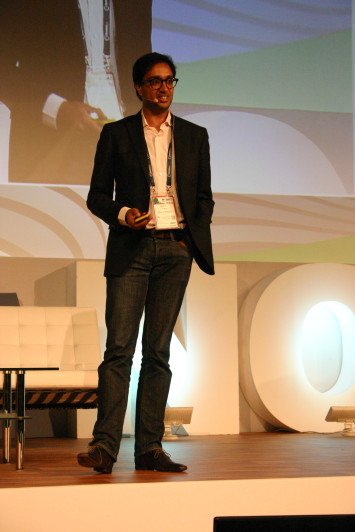
Hussein and Hoxton share an address at the stunning 100 Victoria building with one of their major investors – Isomer Capital. Isomer has not yet publicly launched, but I spoke with Managing Partner Joe Schorge in his top floor office. Hoxton isn't the only well known VC firm Isomer is backing. Another is White Star Capital, where one of the two founders is the outspoken Christian Hernandez Gallardo, who started the fund after a career at Microsoft, Google and Facebook.
On a personal note, I have to mention I co-mentored a bunch of hopeful Mini Seedcamp participants with Christian some time ago – a wonderful experience indeed!
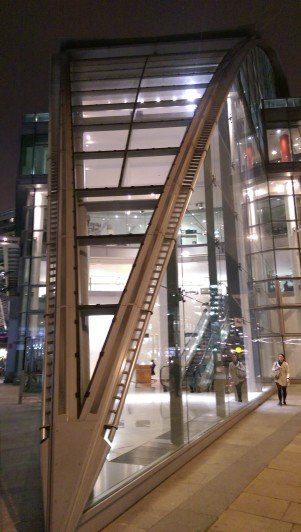
Schorge, a US native with a tech background, wants to help large institutional investors, including those from the US and China, feel more at ease when looking at the European tech landscape. As he sees it, large endowments and pension funds don't always know or understand what's going on this side of the Atlantic, so he and his Isomer crew want to offer them a „lens“ onto the Old Continent and help them maximise some of the numerous opportunities arising from our ecosystem. We will soon hear more details about Isomer and what they've been up to.
The German angle of NOAH London obviously meant meeting some very interesting movers and shakers from that ecosystem. One of these was Frank Thelen, serial entrepreneur (think ScanBot, scanning and QR app for your smartphone) and investor. Frank is something of a celebrity superstar in Germany, being one of the featured investors on the German version of Dragon's Den - Die Höhle der Löwen (Lion's Den). He and his longtime „partners in crime“ Alex Koch and Marc Sieberger created e42 – an investment fund based solely on their own money, earned through successful exits from their previous projects. They are very hands-on investors, working closely with their porfolio companies on all major aspects of the business. Does having such an approach limit them to investing only in German startups?
„Not necessarily,“ Thelen responded „we have a number of portfolio companies outside of Germany. Skype and videoconferencing are very practical, and after all it's not so far to travel in Europe to where our companies are.“ One of these portfolio companies is Hole19, a team I had the pleasure of meeting when I was reporting on the Lisbon startup ecosystem.
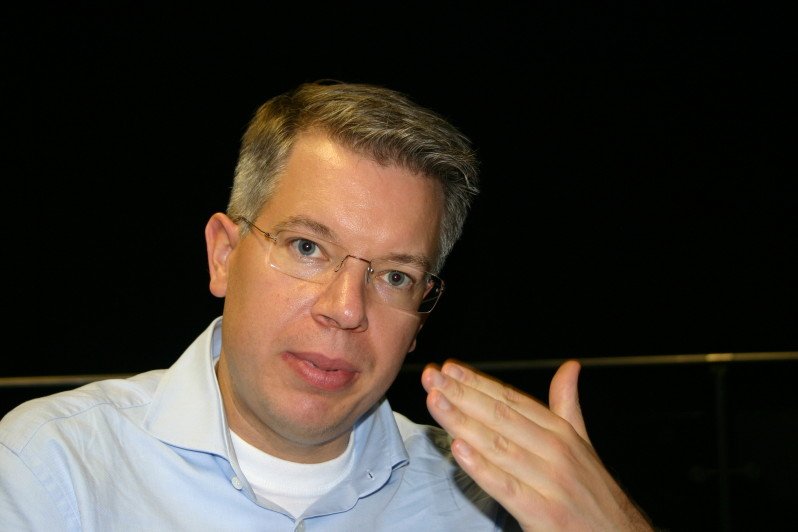
Another intriguing German company was Helpling. I had an interesting discussion with co-founder and CEO Philip Huffmann. As the old saying goes, „good help is hard to find“. Helpling helps homeowners and people who want to clean homes find each other.
Apparently there are quite a few people looking for help with their houses and flats, since Helpling has raised more than €60 million. On the strength of that financing, Helpling acquired UK rival, Hassle for €32 million (mostly in stock and the rest in cash). Soon after the acquisition Helpling reduced their headcount by some 20%.
This was my very first time talking to the co-founder and CEO of a Rocket Internet company.
Philip and his co-founder, Benedikt Franke, are Rocket veterans, going back a few years with the Samwers. In his talk on stage, he explained how Helpling's financial firepower and speed of execution enabled them to overtake the competition in a short time – the company was founded less than two years ago.
During our conversation he expressed fascination with the Samwer model: „As is publicly known, they end up with a very significant share of their companies without investing all that much money themselves. If Benedikt and I had founded Helpling on our own, we would have much larger equity stakes. However sometimes it's better to have a smaller slice of a bigger pie than vice versa.“ Did he think that all those Rocket companies were soaking up all of the entrepreneurs in Berlin and Germany? „Not necessarily. The type of person who signs up as a co-founder of a Rocket company is usually more rational, less of a risk-taker than the guy who dreams of building his own empire.“
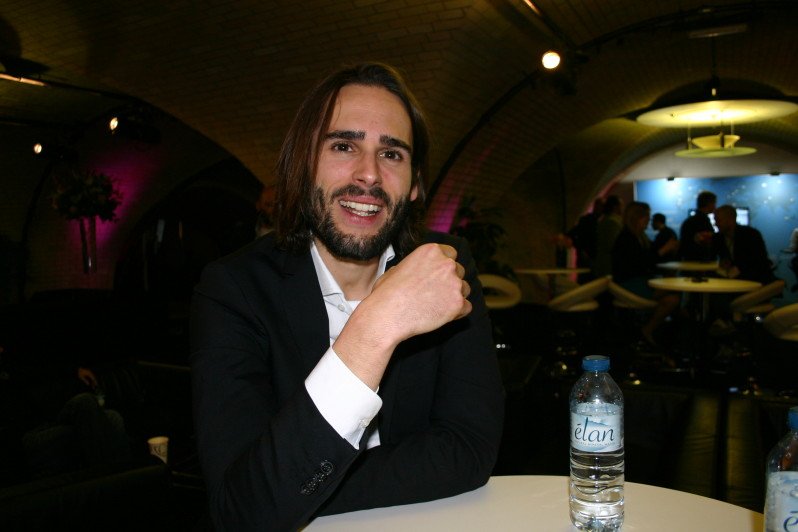
Do you need working capital? Lots of small businesses do, and they often have trouble borrowing from banks, especially if they already maxed out on putting up their homes as collateral – or merely would prefer not to risk becomng homeless for the sake of their small company. Enter iwoca – short for „instant working capital“. CFO Michael Elalouf talked about their „secret sauce“ – a sophisticated back-end algorithm capable of determining a loan applicant's credit worthiness based on a large number of data sources and some very proprietary alhorithms. This enables the fintech startup to make lending decisions within hours and have the money in clients' bank accounts the next day.
Not your mother's loan, indeed!
Iwoca has raised more than $30 million dollars to date and is actually lending its customers money out of its own balance sheet. I was somewhat sceptical about this being a sustainable, scalable business model and whether they would have to structure things a bit differently if they wished to continue their impressive growth rate. Elalouf replied: „Lending customers money from our balance sheet is absolutely a sustainable and scalable business model but it is obviously less directly scalable than a platform business where we license our technology and partner with a bank to provide underwriting services. This is where we see a lot of value.“
He was referring to an indicator of possible future solutions to that problem: German banking heavyweight Commerzbank participated in the company's recent $20 million B round.
Jens Wohltorf, CEO of Blacklane whom I interviewed earlier this year, was also at NOAH along with his trusted head of communications, Adam Parken. I wondered if Blacklane had doubled since our conversation in April? „Certainly!“ Wohltorf declared – „We are growing by 15-25% month over month on average with some major customer segments seeing stable growth rates of 30-40%!“ Blacklane moved into a new office in Berlin just after our previous encounter and, more importantly, is developing strategic partnerships with various companies and tech platforms which are catering to their main customer of interest – the traveler.
Outside Old Billingsgate, this year's NOAH London venue, I had one more meeting and this one was quite special. Accompanied by some of my colleagues from the Croatian IT industry, I headed over to Aviation House. The building is home to the UK Government Digital Service, where we met with UK CTO Liam Maxwell and his colleague Emma Gawen.
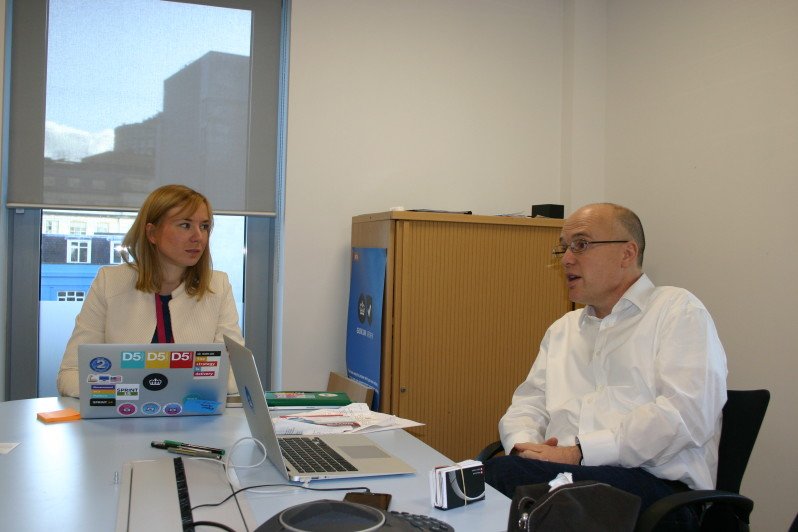
This visit was a real eye-opener. A government agency with large open spaces full of hackers, hustlers and hipsters banging away at keyboards – the environment at GDS obviously had much more in common with Deliveroo's dynamic workplace than with the staid and stuffy government offices which we've all seen too many of in our time.
One of the most impressive things we saw there was the „Performance Platform“ – an online dashboard displaying all of the UK's 802 government services online, in real time. That's right – 802. Now – does your government know how many services *they* provide to taxpayers?
The platform tells us, for example, that 32,300 citizens booked a practical driving test in the UK from 9 to 15 November, of which 686 by telephone and 2 (!) by post. The others, obviously, booked their tests online.
Maxwell and his team have spent countless hours in meetings with ministries and other public sector bodies, convincing their colleagues that they all need to focus their efforts, money and projects on what the citizens and businesses say they need, not on what ministries and agencies think they „should need.“ This endless repeating of arguments and explanations finally led Maxwell to print posters and smartphone stickers with five „magic words“, in All Caps: „WHAT IS THE USER NEED?“ I could sense another word somewhere in there, between the third and fourth words, but clearly that would be quite improper, mind you.
It was a shame to have missed out on many of the really interesting talks and presentations, but NOAH and London were truly a blast. I look forward to coming back to see more lederhosen in London in 2016 and to reporting in more detail on some of the entrepreneurs and investors I had the pleasure of meeting with.
All photos credit to Ivo Spigel / tech.eu


Would you like to write the first comment?
Login to post comments